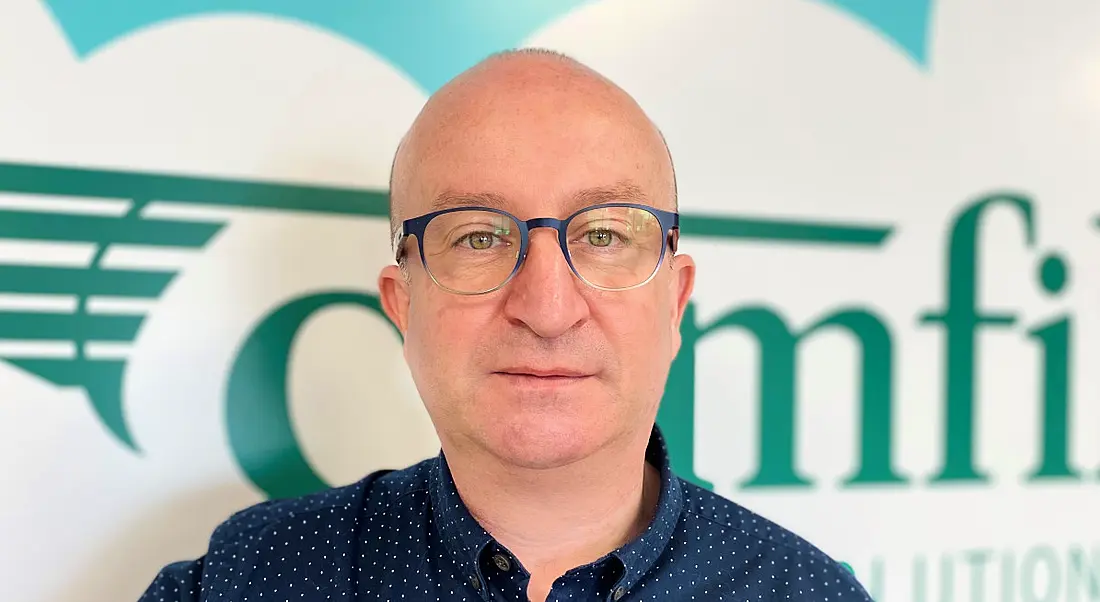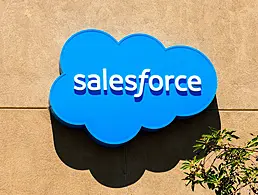Air we go again: Paul Flanagan of HVAC company Camfil discusses ventilation in the workplace as Ireland re-embarks on the return to workplaces.
As the return to workplaces and offices continues apace following the Government’s recent easing of Covid-related public health restrictions, Camfil’s Paul Flanagan has been busier than usual.
As managing director of the air filtration company’s Irish branch, Flanagan has been speaking to people all over the country about how important clean air is in maintaining workplace health and safety standards. Until now, he has mostly been dealing with teachers amid the reopening of schools.
The same day Flanagan spoke to SiliconRepublic.com, the Government published its Transitional Protocol document aimed at people who are returning to the workplace.
The document contains general advice on reducing the spread of disease in workplaces by adhering to best practices around hand washing, respiratory hygiene, physical distancing and ventilation. It is not a hugely detailed document and it was published more than a week after the workplace reopening announcement was made.
On the subject of ventilation, the document recommends improving air quality in workplaces “through natural means (eg, opening a window) or by mechanical means eg HVAC systems,” used for heating, ventilation and air conditioning.
“The overall objective should be to increase the ventilation in the workspace wherever possible thereby improving the existing ventilation without impacting on the workers’/occupants’ comfort,” the protocol recommends.
It includes a link to the Health and Safety Authority (HSA) website for more information on assessing ventilation in the workplace. The HSA’s advice echoes that already provided around the reopening of schools. It states that the “most suitable” air cleaning and filtration units are HEPA filters.
HEPA filters, or high efficiency particulate air filters, can remove at least 99.95pc of dust, pollen, mould, bacteria and other airborne particles. They can’t remove Covid-19 from the air fully, but can reduce risks and improve air quality if used correctly.
Air cleaning units with HEPA filters can be installed in any space similar to a local air conditioning device. However, the HSA warns that the units lose their efficacy if they haven’t been appropriately sized for the room and two smaller units in different locations in a room can be more effective than one larger unit. It’s also advised that HEPA filters should be introduced into workplaces only as “part of an overall assessment of the existing ventilation systems in place.”
These systems can be complicated to use and require proper training to operate and maintain, and Flanagan said a lot of people he has met with around the country don’t seem to be using them properly. He believes the Government should engage more with the private sector on the issue of ventilation in workplaces to make sure companies are using devices correctly and that they have certified HEPA filters.
Some specialised industries “are very up to speed on what the requirements of a certified and tested HEPA filter is for the specific industry they are in,” Flanagan added. These include people working in pharmaceutical and medical device companies, which already have in-built HVAC systems.
For ordinary offices, stand-alone air cleaners with HEPA filters are the next best thing, according to Flanagan, but only if used correctly. He reckons that, based on his recent visits to offices near Dublin’s IFSC, businesses with big budgets will “take the time” to understand how HEPA filters work because they “have the resources and they have facilities managers on these sites to ask the questions”.
According to Flanagan, many of the mistakes made around air filtration are down to budgetary and time constraints. In the case of schools, he said he has seen many principals not adhering to the advice published by the Department of Health because they don’t have the money. “And the same will probably happen in businesses now.”
Flanagan acknowledged that it can be difficult for people to gauge the efficacy of HEPA filters versus ordinary air purifiers that can be picked up cheaply in electrical goods shops. But he has seen that the proper management of ventilation in workplaces can make a huge difference in workers’ health.
Camfil worked with the Department of Agriculture when meat plants were impacted around the beginning of the pandemic. Flanagan said the team installed a system in one of the plants and claimed it has had “zero cases since”.
“So, I just feel that it’s very important for people returning from working from home now going back to the office, that if they do invest in air cleaners, that they understand the correct standards to follow and that they don’t go down the road of just looking at the cheap products.”
Don’t miss out on the knowledge you need to succeed. Sign up for the Daily Brief, Silicon Republic’s digest of need-to-know sci-tech news.




